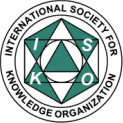Knowledge management Jobs panel: recruiting and applying
In this panel session we examine how knowledge management job roles are described and advertised, and offer advice on how to seek out or recruit for knowledge management roles. This panel session is based on the Singapore experience, but brings in insights from overseas as well. We are interested in two aspects: how to recruit effectively to KM roles, and how to apply for KM roles.
Our panel looked at the following questions:
1. When is a "KM role" not a KM role?
2. What should be the distinguishing features of knowledge management job roles?
3. What are some examples of good job descriptions and bad job descriptions?
4. What does it tell you and what should you do if faced with a weak job description in KM?
5. How should you present yourself and your experience when you are going for a KM role?
6. What should you look for in a prospective KM employer?
7. If you find out that an advertised "KM role" is really primarily about something else (e.g. IT, records management) how should you deal with this?
8. What are the questions employers should ask of candidates in KM, and what are the questions candidates should ask prospective employers?
For background:
Here is a compilation of 25 Singapore and non-Singapore KM job advertisements, which we used as a resource during the session. Download here.
Our panel looked at the following questions:
1. When is a "KM role" not a KM role?
2. What should be the distinguishing features of knowledge management job roles?
3. What are some examples of good job descriptions and bad job descriptions?
4. What does it tell you and what should you do if faced with a weak job description in KM?
5. How should you present yourself and your experience when you are going for a KM role?
6. What should you look for in a prospective KM employer?
7. If you find out that an advertised "KM role" is really primarily about something else (e.g. IT, records management) how should you deal with this?
8. What are the questions employers should ask of candidates in KM, and what are the questions candidates should ask prospective employers?
For background:
Here is a compilation of 25 Singapore and non-Singapore KM job advertisements, which we used as a resource during the session. Download here.
|
Kim Martins
Kim is based in New Zealand and is one of Asia Pacific's most experienced knowledge management and learning professionals. She has held a number of senior positions in the KM field in Australia from Chief Knowledge Officer for Ernst and Young, Australia to Director, Knowledge Networks, Australian Securities and Investments Commission. Most recently, she was a Senior Consultant working on KM strategy for IFAD (Water sector) in Rome, Italy. Kim was the Chair for Standards Australia KM Committee from 2005-2010 - the Committee responsible for the Australian KM Standard. Kim speaks regularly at conferences and conducts workshops and masterclasses in the areas of communities of practice; leadership; information & knowledge audits; KM strategy development. She is the editor of Rethinking Knowledge (2002). Kim is also an author, poet and freelance writer, with specialization in history and mythology. Shaharudin Mohd Ishak Shah was previously Deputy Director for Knowledge Management at Enterprise Singapore, formerly International Enterprise (IE) Singapore, and is an Exco member of ISKO Singapore. He was responsible for the digital transformation effort at Enterprise Singapore, and for ensuring that digital transformation and knowledge management remained aligned. He led various key Knowledge Management initiatives, including the organisation-wide knowledge audit, knowledge transfers and retention program, knowledge sharing and awareness program and the award-winning IEX intranet (IBF). He has a Master's in Knowledge Management, and a passion for social media and content marketing. Shaharudin's experience includes 11 years in the area of Intranets and Knowledge Management. Matt Moore Matt Moore, originally from the UK and now based in Sydney, Australia, has worked in the knowledge management field for over 20 years. He is currently Head of Projects and Process Improvement at Employment Hero, Sydney, Australia. Matt has developed knowledge management strategies, implemented content management systems, facilitated communities, developed classroom and eLearning programs, and developed and written marketing programs for corporations, government agencies and non-profits. He has worked in knowledge and information management, learning, marketing, sales operations and communications with organisations such as PwC, IBM, Oracle, Seven West Media and the Australian Securities and Investments Commission. Matt is a Visiting Fellow at the University of Technology Sydney. He is co-convenor of the Information Innovation @ UTS seminar series, and is a member of the Innovations in Knowledge Organisation Conference Advisory Board. Nick Milton Dr. Nick Milton is director and co-founder of Knoco Ltd (www.knoco.com) with 25 years of experience in Knowledge Management. Working with Knoco Ltd, Nick has been helped develop and deliver KM strategies, implementation plans and services in a wide range of different organizations around the globe. He has a particular interest in Lessons Learned programs, and has managed major lessons capture programs, particularly in the area of mergers and acquisitions, and high technology engineering. Prior to founding Knoco, Nick spent two years at the centre of the team that made BP the leading KM company in the world at the time; acting as the team Knowledge Manager, developing and implementing BP's knowledge of "how to manage knowledge", and coordinating the BP KM Community of Practice. Nick is the co-author with Patrick Lambe of "The Knowledge Manager's Handbook", with Stephanie Barnes of "Designing a Successful KM Strategy", and author of "The Lessons Learned handbook," "Knowledge Management for Teams and Projects", "Knowledge Management for Sales and Marketing" and "Performance through Learning - knowledge management in practice". Nick blogs most days (www.nickmilton.com) and can be found on Twitter (@nickknoco). |
resources
ANALYSING JOB DESCRIPTIONS
Here are two posts from Nick Milton on how to read KM job descriptions:
Here's a post on decoding job descriptions from Fareen Shaikh, including identifying buzzwords that could be euphemisms for red flag features of the job.
Here's a post from Greg Lewis summarising some LinkedIn research on what readers actually focus on when looking at job descriptions.
ANALYSING JOB ROLES AND WRITING JOB DESCRIPTIONS
There is a lot of scattered work on defining the competencies for knowledge management roles.
Angela Abel and Nigel Oxbrow wrote an excellent book Competing with Knowledge: The Information Professional in the Knowledge Management Age (London: TFPL 2001) covering the contexts of KM work and the competencies needed.
Awie Foong and Patrick Lambe published a short booklet with a competency framework based on roles, Knowledge Management Competencies: A Framework for Knowledge Managers (Singapore: iKMS 2008) - out of print - request a soft copy here.
Andre Saito conducted a research project on a competence based approach to KM education in 2007, and his competency framework was serialised by RealKM Magazine in 2016.
Stephen Bounds of RealKM Magazine released the RealKM Open KM Syllabus in 2018. It is intended to cover both professional knowledge and competencies.
The Chartered Institute of Library and Information Professionals (CILIP) has updated its Professional Knowledge and Skills Base competency framework to cover knowledge management roles and competencies, it is aligned with the ISO 30401 KM systems standard, and supports its Chartered Knowledge Manager programme.
Stan Garfield issued a list of KM roles in 2019, some of them with links to additional resources on the competencies and expertise required to perform them.
Nick Milton has written several blog posts on KM roles and accountabilities.
Dr. Angelika Mittelmann and Gabriele Vollmar have published a Catalogue of KM Competencies which provides a competency framework together with defined proficiency levels. This catalogue is the outcome of a discussion held by the German Society for Knowledge Management (GfWM) . The English language version is shared here courtesy of the authors, and they welcome feedback from the international community.
APPLYING FOR JOBS
Here is a guide from Tom Short on how to compile a useful brief resume for seeking KM jobs.
The discussion surfaced eight key pieces of advice for applicants for KM jobs:
A final observation from the panel was that many of these insights and questions also apply to KM consultants evaluating prospective clients and projects.
Here are two posts from Nick Milton on how to read KM job descriptions:
- This first post shows how word clouds can quickly show whether the job role is a truly varied KM role covering a span of knowledge management activities and competencies, or is really a technology or content management job "in disguise".
- This second post provides a great breakdown of a good job description for a strategic knowledge management role. Nick's commentary provides a great tutorial in how to construct an effective KM job description.
Here's a post on decoding job descriptions from Fareen Shaikh, including identifying buzzwords that could be euphemisms for red flag features of the job.
Here's a post from Greg Lewis summarising some LinkedIn research on what readers actually focus on when looking at job descriptions.
ANALYSING JOB ROLES AND WRITING JOB DESCRIPTIONS
There is a lot of scattered work on defining the competencies for knowledge management roles.
Angela Abel and Nigel Oxbrow wrote an excellent book Competing with Knowledge: The Information Professional in the Knowledge Management Age (London: TFPL 2001) covering the contexts of KM work and the competencies needed.
Awie Foong and Patrick Lambe published a short booklet with a competency framework based on roles, Knowledge Management Competencies: A Framework for Knowledge Managers (Singapore: iKMS 2008) - out of print - request a soft copy here.
Andre Saito conducted a research project on a competence based approach to KM education in 2007, and his competency framework was serialised by RealKM Magazine in 2016.
Stephen Bounds of RealKM Magazine released the RealKM Open KM Syllabus in 2018. It is intended to cover both professional knowledge and competencies.
The Chartered Institute of Library and Information Professionals (CILIP) has updated its Professional Knowledge and Skills Base competency framework to cover knowledge management roles and competencies, it is aligned with the ISO 30401 KM systems standard, and supports its Chartered Knowledge Manager programme.
Stan Garfield issued a list of KM roles in 2019, some of them with links to additional resources on the competencies and expertise required to perform them.
Nick Milton has written several blog posts on KM roles and accountabilities.
Dr. Angelika Mittelmann and Gabriele Vollmar have published a Catalogue of KM Competencies which provides a competency framework together with defined proficiency levels. This catalogue is the outcome of a discussion held by the German Society for Knowledge Management (GfWM) . The English language version is shared here courtesy of the authors, and they welcome feedback from the international community.
APPLYING FOR JOBS
Here is a guide from Tom Short on how to compile a useful brief resume for seeking KM jobs.
- Visit the Guide here
The discussion surfaced eight key pieces of advice for applicants for KM jobs:
- Ask how long the organisation has been doing KM. This will guide you on their likely level of maturity in KM and understanding of what KM entails.
- Ask them to tell you about the KM team. KM requires the application of a diversity of skills and disciplines, and if an organisation is not aware of that, then the role is likely to be a very hard slog.
- Find out who the KM role reports to and what they expect from the appointee. This will guide you on the lens through which they interpret KM, and the kinds of outcomes and deliverables they will expect from the job holder.
- Analyse the vocabulary in the job description. This will tell you about the main focus areas in the role.
- Find out as much as you can about the background to this appointment, from other industry sources if you can, as well as the prospective employer. If it is a new role, what is expected of the appointee and what kind of support will be given to help the new role get established. If it is a pre-existing role, what happened to the previous job holder.
- Ask what the role will be measured on.
- Be honest and expect honesty from the employer. Describe what you are good at and what you are not good at, and ask what is expected of the appointee before deciding whether the job is a good fit for you.
- Beware of buzz words and hyperbole in the job description. These can often mask red flags or an imperfect understanding from the employer of what the job will really entail.
A final observation from the panel was that many of these insights and questions also apply to KM consultants evaluating prospective clients and projects.
EVENT MATERIALS
Here is an edited version of the chat discussion accompanying the panel.
Here are Nick Milton's slides giving an analysis of KM job roles based on survey and LinkedIn data. Download here.
Below you can view the video recordings of the panel discussion:
Part 1: Shaharudin Mohd Ishak and Kim Martins on why KM job descriptions are often not about KM roles
Part 2: Matt Moore and Nick Milton discuss the perspectives of employers and KM job applicants, including the availability of KM competency frameworks and KM qualifications
Part 3: Nick Milton discusses an analysis of KM jobs from LinkedIn and survey data, and the panel discusses the disappearing role of the CKO
Part 4: The panel critiques a selection of recent KM job advertisements
Here are Nick Milton's slides giving an analysis of KM job roles based on survey and LinkedIn data. Download here.
Below you can view the video recordings of the panel discussion:
Part 1: Shaharudin Mohd Ishak and Kim Martins on why KM job descriptions are often not about KM roles
Part 2: Matt Moore and Nick Milton discuss the perspectives of employers and KM job applicants, including the availability of KM competency frameworks and KM qualifications
Part 3: Nick Milton discusses an analysis of KM jobs from LinkedIn and survey data, and the panel discusses the disappearing role of the CKO
Part 4: The panel critiques a selection of recent KM job advertisements
|
Date/Time
Venue Type of Event Who should attend Fee |
Friday 21 May, 2021, 3.30-5.00pm (Singapore)
This was a virtual session using Zoom conferencing. As we follow strict security protocols, only participants who were registered in advance, were admitted to the session. Case Discussion | Networking | Panel | Site Visit | Talk & Discussion | Workshop * Knowledge and information managers, IT professionals, search managers, corporate librarians, senior executives and general managers. This event was free to all participants. |
ISKO Singapore is registered in Singapore. Society registration number T15SS0160B
By continuing to use the ISKO Singapore website you are agreeing that ISKO Singapore may collect, use and disclose your personal data obtained by ISKO Singapore as a result of your use of the ISKO Singapore website. Please consult our data protection policy, including how you may access and correct your personal data or withdraw consent to the collection, use or disclosure of your personal data.
By continuing to use the ISKO Singapore website you are agreeing that ISKO Singapore may collect, use and disclose your personal data obtained by ISKO Singapore as a result of your use of the ISKO Singapore website. Please consult our data protection policy, including how you may access and correct your personal data or withdraw consent to the collection, use or disclosure of your personal data.





